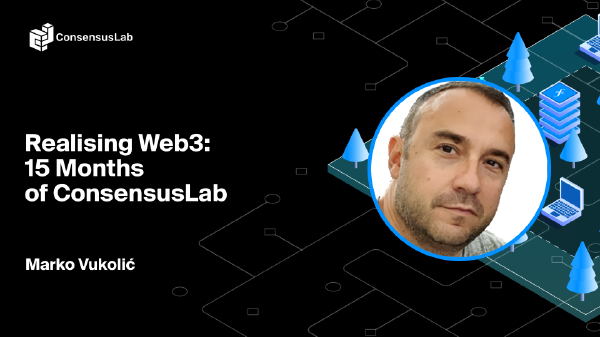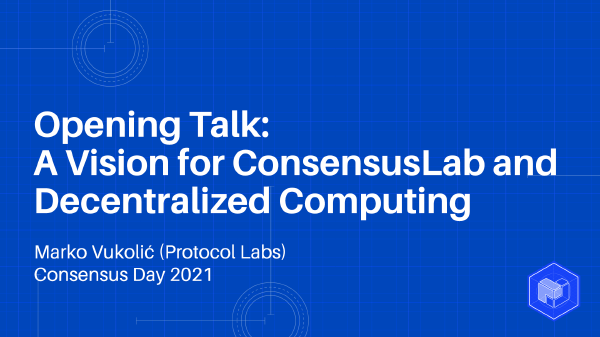Marko joined Protocol Labs mid-2021 as the ConsensusLab lead. Prior to this he was a Principal Research Staff Member in IBM Research Zurich, where he worked from 2015-2021 and earlier as a PostDoc (2008-2010). Marko has also served as tenured faculty at EURECOM (2010-2014) and a visiting professor at the Systems Group at ETH Zurich (2014).
Marko obtained a Doctor of Science (PhD) degree in Distributed Systems from EPFL in the Distributed Programming Laboratory (LPD) in 2008. Prior to his PhD, Marko graduated from the EPFL Doctoral School in Computer and Communication Sciences in 2003 and obtained a dipl.ing. degree in Electrical Engineering (Telecommunications) from the School of Electrical Engineering, University of Belgrade, in 2001.
Marko’s main research interest is in decentralized systems, that is in distributed systems that span multiple administrative and trust domains (e.g., permissionless and permissioned blockchain systems). This fascinating area of computer and communication sciences blends (Byzantine) fault-tolerant distributed systems, planet-scale computer networking, security, data privacy, applied cryptography, game theory and economics. He describes himself as basically interested in “decentralizing everything”, including payment and financial systems, cloud computing and machine learning/AI. His recent focus has been on building highly scalable and efficient consensus protocols to help improve throughput of decentralized systems.



